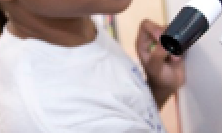Powerfull Voice of Kids - Digital & Media Literacy Education
- Motivator
Description

You are an inspiration, a catalyst for your students’ creative energy. Students who have never felt comfortable speaking up in class, participating in activities, or contributing to class dialogue find it easier to speak their mind when you’re leading the classroom. But you don’t necessarily see yourself as a leader, even if you are one—you see yourself as more of a springboard or facilitator. What’s important is what the students want to say and to do; your role is to help them to be the best “them” they can be.
Protect
- Teaching students how to guarding themselves media that may be harmful to their self-esteem or sense of self-worth.
- Requiring students to provide positive feedback to their peers that affirms the strongest qualities of student participation and classroom work.
- Carefully selecting classroom materials that will not challenge students’ sense of power in their own creative expression.
Empower
- Fostering an environment in which students feel comfortable sharing their ideas, opinions, and unique creative talents to express themselves.
- Encouraging students to pursue subjects that they find interesting or engaging as the basis for classroom activities and projects.
- Providing opportunities for students to spark and sustain their own dialogue in the classroom, with only occasional scaffolding and direction from the teacher.
Strengths
Motivators are the teachers students remember fondly for their commitment to collaboration and student voice—students feel that their own ideas and creative spirit are respected and developed. Motivators are also sensitive to bringing every student along for the creative journey; their charisma make it difficult for students to opt out.
Challenges
Motivators can sometimes err on the side of too little structure or too much chaos in the classroom, which can impede student clarity and direction—though students’ voices are powerful, they are also in a state of development, which means that students may not know yet exactly what they have to say. Motivators also need to ensure that students feel comfortable not only expressing themselves, but questioning each other’s work respectfully and challenging each other to do better and more thoughtful work.
Related Ideas
-
zoom
 Interpreting & Creating Photos
Interpreting & Creating Photos
How do children learn to interpret visual media?...
-
zoom
 City as Classroom
City as Classroom
Creating a non-fiction comic about the life of a...
-
zoom
 Authors and Audiences
Authors and Audiences
Why authors create
...